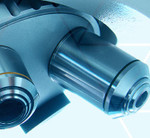Urine boron testing has gained popularity due to claims that it can strengthen bones, build muscle mass, increase brain activity, strengthen the immune system, increase calcium absorption from foods and lowers the amount of calcium excreted from the body. Boron is a trace mineral and is essential in very tiny amounts to maintain health and proper function of the body.
No RDA has been established for boron at this time. Amounts recommended are 1.5 mg for children, 2.0 mg for males and females, and 3.0 mg/day for post-menopausal females.
Boron is abundant in pears, apple, grapes, soy beans, nuts and green leafy vegetables (providing the soil contains adequate amounts of boron).
A 20-mL random or 24 hour urine specimen is required for this test.
REFERENCES:
- Shils, M.E., Young, V.R.. Modern Nutrition in Health and Diseases, 7th edition, Lea & Febiger, Philadelphia, 1988.
- Schaus, A.G., Minerals, Trace Elements and Human Health, Life Sciences Press: Tacoma, WA, 1996.
- CPT CODE:
- 82190
- COLLECTION CONTAINER:
- Clean container
- COLLECTION INSTRUCTIONS:
- LBOR-Boron.pdf
- MINIMUM VOLUME:
- 10 mL
- NORMAL VALUES:
Random: 0.5 - 2.5 ug/mL
24 Hour: 1100 - 3700 ug/24 hrs- PATIENT PREP:
- None
- PROCESS METHOD:
- The methodology is by ICP.
- PROCESS TIME:
- 5 to 7 business days
- SPECIAL INSTRUCTIONS:
- None
- SPECIMEN VOLUME:
- 20 mL urine
- TRANSPORT CONTAINER:
- Plastic transport tube
- TRANSPORT INSTRUCTIONS:
- Refrigerate or freeze
- STATE & SHIPPING RESTRICTIONS:
- We cannot ship lab kits to NY, AK, HI, or international








